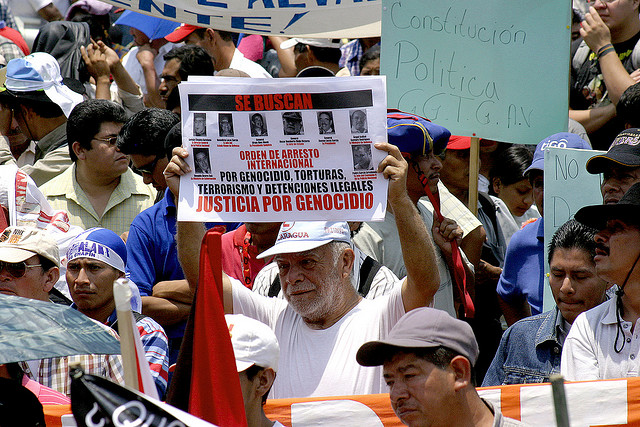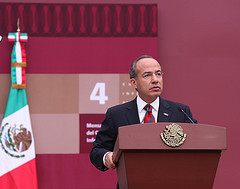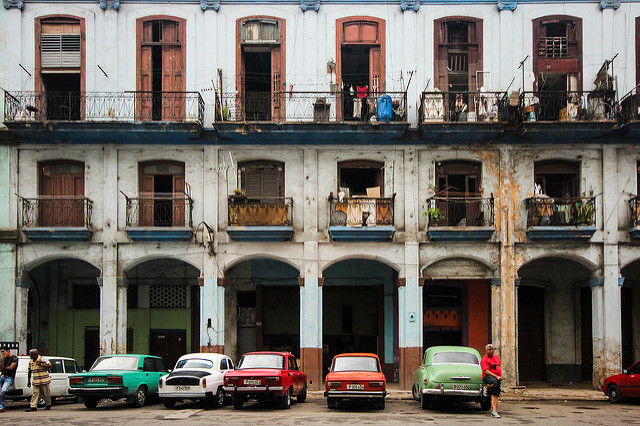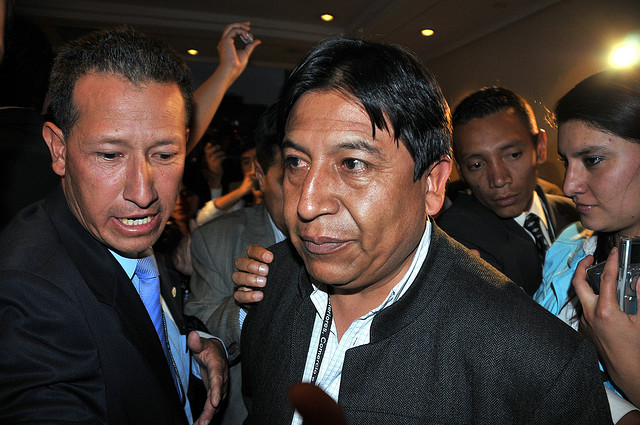
Guatemala, Latin America: Week in Review
Guatemala: Former President Mejía Declared Fugitive For Genocide
October 14, 2011 By Staff
Today in Latin America
Top Story — Former Guatemalan President Óscar Mejía was declared a fugitive on Thursday by authorities who ordered his arrest to face charges of genocide during the country’s 36-year civil war. The 80-year old Mejía, who led a coup against former dictator Efraín Ríos Montt and served as president from 1983 to early 1986, is wanted for ordering massacres in the Ixil, Quiché indigenous region when he served as chief of the military from 1982 to 1983. Guatemalan police raided four homes in the capital of Guatemala City on Wednesday, but were unable to find Mejía. The 1960-1996 civil war between military forces and left-wing guerrillas left a nearly a quarter million people dead or missing. A United Nations-backed truth commission found that Guatemala’s military committed hundreds of massacres during the civil war. The hunt for Mejía comes as Guatemala prepares for its run-off presidential election in November, where former General Otto Pérez Molina leads the race. The prospect of a former military leader taking command of the country has some Guatemalans uneasy and a poll released Wednesday showed the contest is tightening.
Headlines from the Western Hemisphere
North America
- Accused Mexican drug-trafficker Edgar Valdez Villarreal, also known as “La Barbie,” has gone on a hunger strike because authorities are denying him conjugal visits.
- Many Latinos in Alabama returned to work on Thursday, after skipping work in a one-day protest against the state’s new immigration law.
- U.S. officials said on Thursday that they want American aid to Mexico to be used to foil plots like that involving Iran as well as combating drug cartels.
- Seven inmates have died in a prison riot on the outskirts of the northern Mexican city of Monterrey, according to Mexican security officials.
- The death toll in Mexico in the wake of Hurricane Jova has risen to six people, after the body of a man was found covered with mud in the town of Cihuatlán in Jalisco state.
Caribbean
- The Cuban government has agreed to receive direct flights from New Orleans for the first time in half a century. The airport received U.S. permission to carry flights to Cuba back in March.
- Hundreds of teachers, farmers and union leaders gathered outside the Dominican Republic’s Congress this week to demand more spending on public education.
- The International Monetary Fund is expected to analyze documents Friday that are necessary to move forward with the payment of $380 million in loans to the Dominican Republic.
- More than 600 officers from the FBI, the Drug Enforcement Agency and local police conducted a raid Thursday on a Puerto Rican housing complex, where the island’s largest drug gang, Calle Cuatro, is allegedly located.
Central America
- Honduras is on track to break the world record with its murder rate, which is estimated to be 86 killings per 100,000 inhabitants.
- Costa Rica overturned a rule prohibiting conjugal visits between same-sex couples, the Supreme Court said Thursday.
- The U.S. government returned a bowl to Belize that was taken from a Mayan temple in the country.
- The clothing company Gap plans to open a franchise in Panama as well as in two other Latin American nations.
Andes
- The Venezuelan government has spent $1.5 billion in allied countries in three years to finance dozens of projects such as replacing light bulbs in Bolivia, according to documents.
- Colombian Vice President and former union man, Angelino Garzón, defended the country’s free trade agreement with the United States.
- Police in Colombia clashed with student demonstrators in Bogotá, who took to the streets to protest against an education reform bill.
- A Colombian congressional committee defeated a bill Wednesday that would have led to a total ban on abortion.
- Peruvian authorities seized nearly a ton of cocaine and arrested a Colombian, as well as six Peruvians.
Southern Cone
- Thursday marked the one-year anniversary of the rescue of the 33 Chilean miners trapped underground for 69 days.
- A Brazilian prosecutor said that a visa granted in June to alleged terrorist Cesare Battisti should be annulled because it violates the country’s Foreigner’s Law.
- Uruguay’s Presidential Legal Secretary said that remarks made by former President of Uruguay, Tabaré Vázquez, “will not affect the intense and warm relationship we have with Argentina.”
Image: Surizar @ Flickr.





